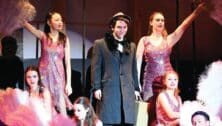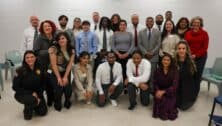Delaware County Leadership: Dr. L. Joy Gates Black
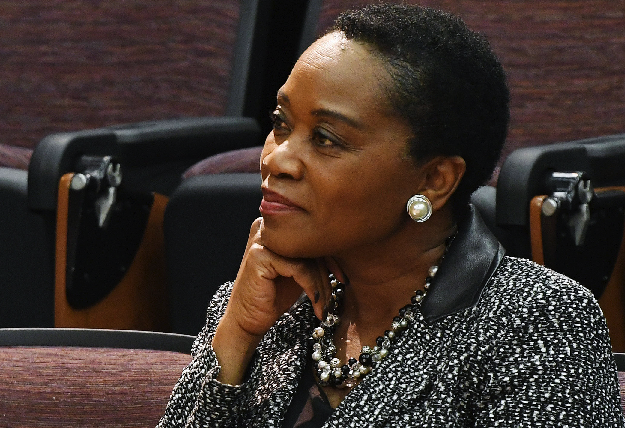
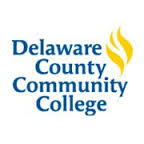
Dr. L. Joy Gates Black, the new president of Delaware County Community College, spoke with DELCO.Today about growing up as an only child in Texas, attending a segregated elementary school, and dropping out of sports in order to allow her love for literature to flourish.
She also discusses joining the Air Force right out of high school, how the lessons she learned molded her into the leader she is today, and why she chose to build a career in education over a number of other fields.
Where did you grow up?
I was born an only child in Texas and grew up in a small town east of Houston named Dayton. Neither one of my parents were college educated. My dad worked in construction, and my mother held several jobs including head of the custodial department for the local school district. In that role she was able to interact with students on a daily basis and be a positive influence in their lives. Many of them have shared with me how my mother’s encouragement impacted their lives. She was also active in our church and involved in the community. She was the first African-American city council member, and mayor pro temp. She also served on the board of the Chamber of Commerce and was chosen Citizen of the Year.
She was pretty bold for a woman in the early 1980s?
Yes, she was, and still is. After retiring, my mother still wanted to play a role in the lives of students, so she got training to serve as a substitute teacher. Now in her 80s, she still substitute teaches on a regular basis and represents the local chamber at new business openings. I have to believe my drive to make a difference and my passion for education and students comes from my mother.
Did you enjoy being an only child?
While I would have enjoyed having siblings, being an only child had its benefits. Growing up, I always wanted a sibling to play with. I had cousins nearby who were a couple years older whom I played with. I learned to do things on my own and to appreciate those things that could be done by yourself, such as reading and listening to music. My parents tried to expose me to many opportunities such as plays, flying on an airplane and going to college football games.
What memories growing up in Dayton stay with you?
My first four years of school I attended a segregated elementary school. By fifth grade, the state mandated that all schools must integrate. While the integration of the school district happened over two years, my parents allowed me to be in the first small wave of four or five African-American kids to attend the fifth-grade class in what had been the all-white school.
What was that experience like?
It was a hard year. Thankfully, I had a very understanding and empathetic teacher, and by the end of the year, I had formed some friendships.
What other memories of Dayton do you have?
It was a small town, where everyone knew each other. I have fond memories of my elementary school teachers and how nurturing they were. I also have a memory of my fourth grade year that I will probably never forget. At that time, the state of Texas was still using the electric chair. For whatever reason, there was an assembly for the whole school and the presenter was a man from the state prison. He brought with him the electric chair and after speaking for a time he sat in the chair and showed us how the prisoners are strapped into the chair and how the current flows through their bodies.
I remember being very frightened and when I got home and told my parents, they immediately contacted the school to complain. The experience gave me nightmares for months. Since this was before integration, I have to wonder if that same presentation was given in the white schools. I was reminded of this memory this fall while reading this year’s College-Wide Reading book by Bryan Stevenson called Just Mercy, which deals with social justice, and specifically death penalty cases.
What sports did you do in high school?
I ran track in my freshman year in high school. At the same time, I had a teacher who took a keen interest in my interest in literature, prose, poetry and acting. In tenth grade, I became so involved in literature, that I dropped out of track and focused exclusively on literature and prose.
From where did your love of literature spring?
My parents were always reading the newspaper and always encouraging me to read. Being an only child, reading was one of the ways I kept myself occupied.
How did your turn away from sports toward literature turn out?
Well, when I told the track coach I wouldn’t be on the team in 10th grade, she said there was no place on her team for quitters. I turned my entire focus to prose and was third in the state of Texas in prose reading and acting my senior year. When I placed third, the coach who had told me there was no place for quitters on her track team, apologized and told me how proud she was of my accomplishments.
What was your first job?
My first job was working in a Dairy Queen! My mother still has a picture of me in my white dress and red pinafore.
My second job, however, is what propelled me into college. The summer between my junior and senior years in high school, I worked at a community center painting and picking up trash. I was making $10 an hour, but it was hard work. I decided then, I was going to college!
What lessons did you take from that first jobs that still stay with you today?
It was the service industry. I learned to be kind to people even if they weren’t nice in return. I also learned to be self-motivating and to take the initiative to do things; if I wasn’t waiting on a customer, I could be stocking the shelves, or cleaning up. Taking the initiative to do things has helped me to learn and grow throughout my career.
Where did you go to college?
At that time being in a small town full of first-generation college students, there weren’t a lot of people telling us we could go to college. Guidance counselors didn’t guide us through the selection process as they do now. My parents knew the value of education and wanted me to go to college.
I knew they couldn’t afford to send me. A friend, who had joined the Air Force, told me about the GI Bill and the possibility of the Air Force paying for college. So, I enlisted, and attended college while serving in the Air Force. I was able to complete my education once I left the military.
In hindsight was joining the Air Force out of high school the right decision for you?
Yes. The Air Force gave me an opportunity to be independent, see the world, get an education, grow up and become a leader.
How did the Air Force teach you to lead?
I learned I could lead from whatever position the Air Force placed me in, that the key ingredients to being a leader were a desire and willingness to step into and fill a void. When someone new came into the office, I stepped up and trained them. No one told me that was my responsibility, I just knew by my training that was my job. I felt that their success was a reflection of me; of the training I had given them.
What did you do once you left the Air Force?
I held a number of positions including working as a civil servant. My move into the field of education came while I was serving as the coordinator of education and training at one of Digital Equipment Corporation’s (DEC) facilities in Springfield, Massachusetts. I truly enjoyed training others and a mentor there suggested I consider getting my master’s degree at Cambridge College. I followed his advice and got my undergraduate certificate and master’s degree in a couple of years. That experience ignited my passion for education.
After finishing my degree and running an alternative high school for a year, Cambridge College offered me a job as a recruiter in their admissions office.
After a couple of years being a recruiter, I worked my way into an assistant dean position at the college. I continued to progress in my career working at both universities and community colleges and went back for my doctorate.
You could have chosen any industry. Why education?
Education is the great equalizer! Education gives people the tools they need to solve problems. Education doesn’t give someone an unfair advantage, rather education gives students, no matter their socioeconomic background, a chance to compete.
I desired to be in a role to help others. Education gave me that chance.
What brought you to Delaware County Community College?
When I was living in Massachusetts, I had friends who lived in Philadelphia. When I visited them, I would explore the city giving me a chance to get to know the region.
When I was living in California finishing my doctorate at Pepperdine, I was able to conduct my dissertation research at a conference for women who aspired to be college presidents held every summer at Bryn Mawr College. The conference not only gave me the opportunity to interview women from all over the world about the personal and professional challenges they encountered as they climbed the career ladder, but gave me another connection to Philadelphia, as well.
How did you hear about the opportunity at Delaware County Community College?
Someone nominated me, and the college’s search firm reached out to see if I was interested. I told them I would look into the opportunity and asked them to send me information. The more I read, the more I liked what I was reading.
What specifically drew your interest?
The college’s strategic plan drew my interest. I know that sounds trite; a strategic plan is just a document after all. The thing I liked about the college’s strategic plan was how honest the plan was about the school’s strengths and weaknesses. Most colleges and universities aren’t as honest in their own assessment. Throughout Delaware County Community College’s plan were critical statements denoting things the college should be doing but was not. And, the best part was the specific things the plan was critical of were not only important strategic moves the college needed to make, but more importantly, they were things that I had experience doing.
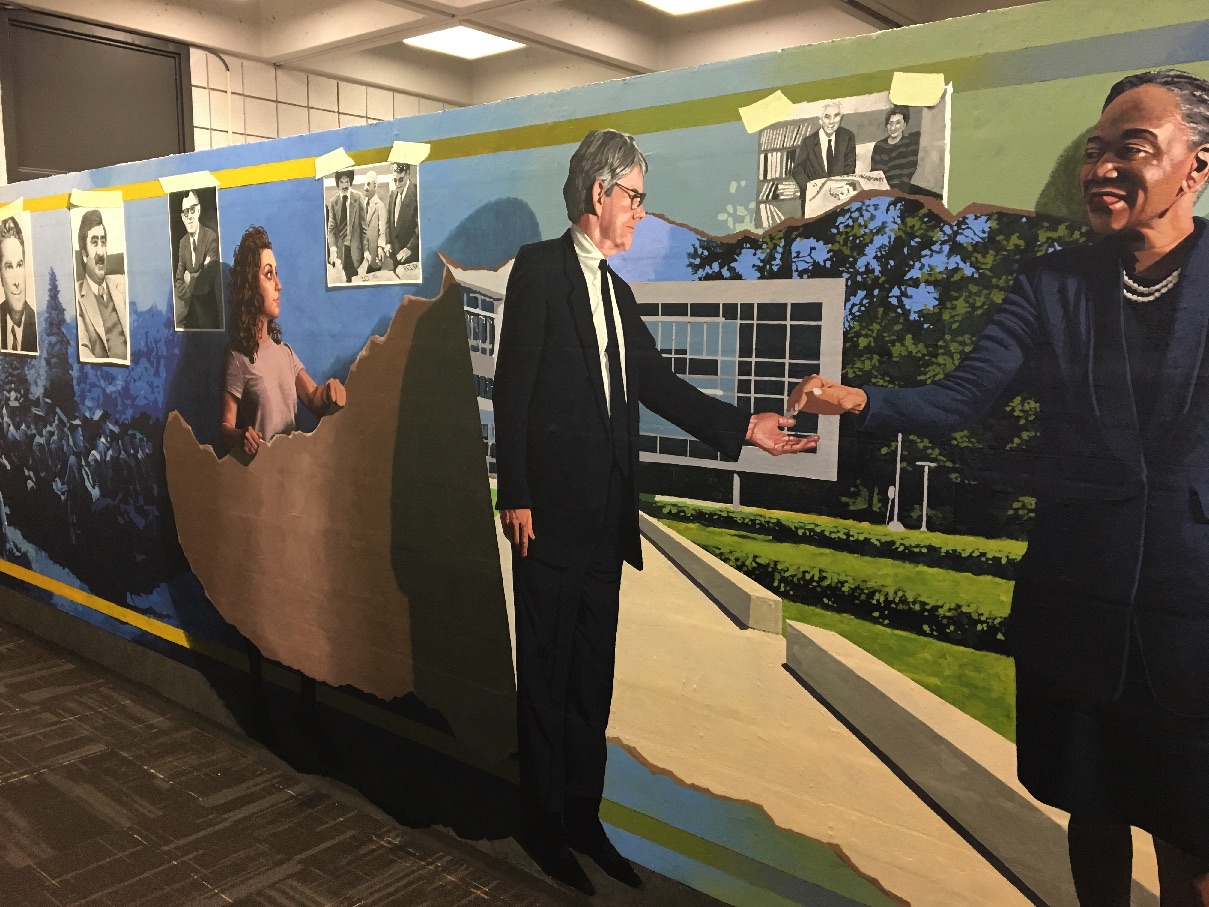
Were you surprised when the search committee offered you the job?
Not completely! When my husband and I visited campus during the interview process, we both felt a connection to the college. My husband told me, ‘You know babe, the other people interviewing for the job are going to have to knock their socks off!’ We both felt a connection and felt the college was a good fit for us.
What challenges and opportunities are you focused on?
Enrollment is my top priority. Whenever the economy gets strong and jobs open up, enrollment at schools like ours goes down. We know the economy, being cyclical, won’t always have the robust number of jobs.
The downturn in our enrollment is forcing us to look at things differently. For instance, the students are different: not only is our student body more diverse than they’ve ever been in our history, but we have more students who are first-generation high school graduates, as well.
We have to focus on retaining our students, helping them to be successful and move through their educational programs to completion.
Another topic I’m focused on is the growing need for dual enrollment. More parents see the return on investment when their young person takes college classes while still in high school, reducing how much money they have to shell out for college.
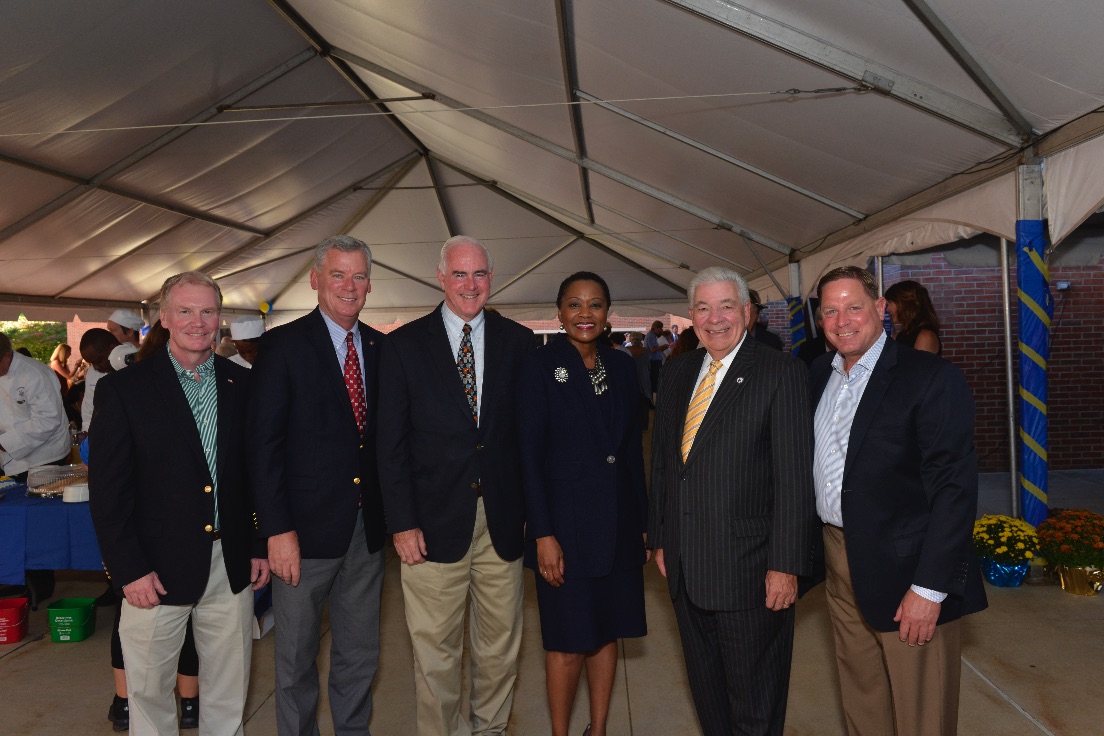
We are also seeing increased demand for our online programs. We recently signed an agreement which allows us to offer our coursework to students in other states.
While it’s true there are a lot of online college courses, we do it better, have more online coursework in high-demand jobs, are accredited and deliver the courses more cost-effectively than most of our competitors.
With over 5,000 students taking our online courses, we feel like we have something to offer the adult learner, the student with a lot going on in their life.
Finally, Dr. Gates Black, what’s the best piece of advice you ever received?
Dr. Ron Wright, a mentor of mine who ironically once taught at Delaware County Community College, once told me: Do the right things for the right reason all the time. If a person governs their life following Ron’s advice, everything will work out just fine, and I have found this to be true. At the end of the day, all a person has is their integrity and their word.
Join Our Community
Never miss a Delaware County story!
"*" indicates required fields





















![95000-1023_ACJ_BannerAd[1]](https://delco.today/wp-content/uploads/sites/3/2023/03/95000-1023_ACJ_BannerAd1.jpg)






